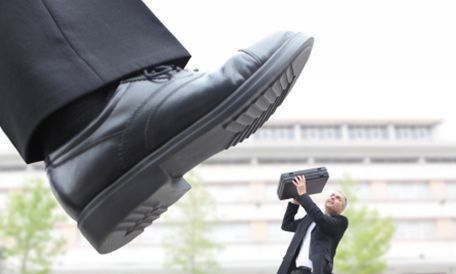2007年6月29日 韩国加大"反间谍"力度
|
在去年11月的北京车展上,韩国现代汽车(Hyundai Motor)公司的管理人员看到了被他们称为"令人震惊"的一幕。 At the Beijing motor show last November, officials of South Korea's Hyundai Motor Company saw what they describe as a "shocking" scene. 在他们眼里,中国汽车制造商们展示的一些新车型--例如辽宁曙光汽车集团(SG Automotive)的"旗胜"和天马汽车集团(Tianma Auto)的"英雄"--看上去与现代的圣达菲(Santa Fe)和下属企业起亚汽车(Kia Motors)的索兰托(Sorento)很相似。 To their eyes, some of the new models displayed by Chinese carmakers - such as the Qisheng by Liaoning SG Automotive and the Yingxiong by Tianma Auto - looked similar to Hyundai's Santa Fe and its affiliate Kia Motors' Sorento. "The moment we saw the Chinese models, we thought they were replicas. The front and rear exteriors looked so similar to our sports utility vehicles," recalls Jake Jang, a Hyundai official. The Chinese carmakers reject Hyundai's accusation. "What the people at Hyundai said about our Qisheng is completely groundless. We made the vehicles ourselves," says Gao Yanlong, an official at Liaoning. Tianma was equally blunt. "We don't need to make any response to the comments by Hyundai. It is their freedom to think that way. But I can tell you, our Yingxiong is fully self-developed. We also registered its related patents with the government," an official says. Still, Hyundai executives returned home with growing fears that their Chinese rivals are closing the technological and design gap with South Korea - a development that could be disastrous for the company. The sense of crisis in South Korea's automotive industry was heightened last month when it emerged that some of Kia's workers had been arrested for allegedly selling car technology to China. They?were accused of stealing crucial information on the Sorento and a new model that will be launched in December. It is not known who the alleged buyers of the technology were. "We believe that we are ahead of China on quality and technology, although we are relatively weak on the cost side," says Kim Hyun-soo at the Korea Chamber of Commerce and Industry. "But the belief is being shaken as technology leaks may allow China to quickly catch up on our strengths." The fear that Chinese manufacturers are fast catching up has generated a sense of siege among many industrialists and lawmakers, even though South Korea itself grew into the world's 11th largest economy by replicating Japanese and US technology, at least in its initial development stage. The National Intelligence Service says it identified 101 cases of industrial espionage between 2003 and May 2007, which it claims cost the country $143.5bn (€106bn, £72bn) in potential losses. Last month prosecutors arrested researchers at Posdata, an affiliate of Posco, the steelmaker, for allegedly attempting to smuggle Wibro - a wireless broadband technology developed by Korea - into the US. "The world is engaged in an economic war so we are trying hard to prevent technology outflows to make our country an economic superpower," says an NIS official. Prodded by the increasing sense of insecurity, parliament has legislated to prevent technology leaks by requiring Korean companies to get government permission if they want to transfer core technologies overseas. The law also provides for industrial spies to be sentenced to up to seven years' jail or fined up to $755,000. For hardline?legislators,?however, even this is not enough to protect South Korea. A group of lawmakers, led by Park Geun-hye of the opposition Grand National party, recently submitted a revised bill aimed at blocking foreigners from taking over domestic companies holding key technologies. Under the bill, local companies must report to the commerce ministry if their technology could be leaked through a merger or acquisition or through joint ventures with foreign companies. The government could then suspend or block such deals if the possible technology outflow was deemed harmful to national security or the economy. The revised bill, if passed by the national assembly, would make it almost impossible for foreign investors to launch hostile bids for high-profile manufacturers such as Samsung Electronics, Hynix Semiconductor or Daewoo Shipbuilding and Marine Engineering. "We don't mean to block foreign investment. We just want to protect our companies with new technologies, because we face growing challenges from under-developed countries as well as advanced ones, regarding our cutting-edge technology and management strategies," says Lee Choon-sang, an adviser to Ms Park. The bill is expected to spark strong complaints from foreign investors, some of whom have dismissed it as a "protectionist" move. Jean-Jacques Grauher, secretary-general of the European Chamber of Commerce in Seoul, says the bill would damp foreign investment in Asia's third-largest economy. "It could be very counterproductive for Korea. They have to make a clear distinction between industrial espionage, which is a crime and should be very heavily sanctioned obviously, and [legal] business practices," he says. |








